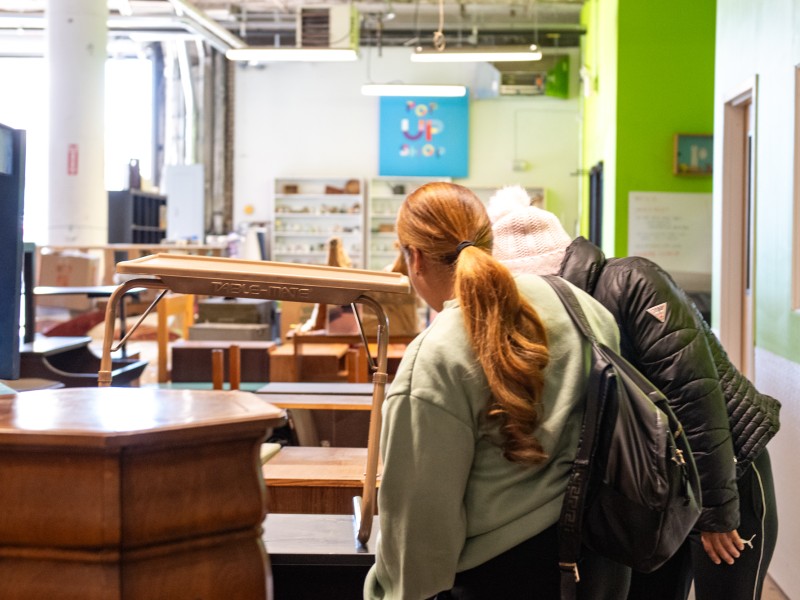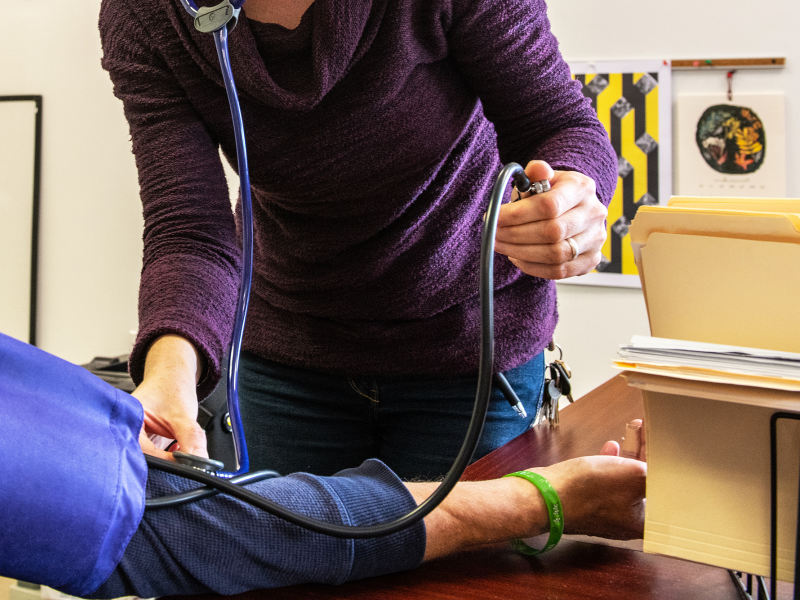Managing Vicarious Trauma and Burnout in the Workplace

There’s no question that the ripple effects of the persisting COVID-19 pandemic are being experienced worldwide. In March 2022, the World Health Organization reported that, in the first year of Covid, “global prevalence of anxiety and depression increased by a massive 25%” and the ongoing effects on our mental and physical health continue to be studied. The significant impact on our service recipients in Philadelphia is clear—We’ve seen an increase in substance use overdose deaths, physical isolation, and barriers for those vulnerable and oppressed groups who already found it difficult to access care. However, in seeking to address these concerns, we cannot overlook the experiences of our behavioral health workforce.
In an effort to further explore the pandemic’s impact on helping professionals, I sat down with two mental health providers from the Philadelphia Department of Public Health’s Department of Substance Use Prevention and Harm Reduction. Rachel Essy and Kaitlin Worden are bereavement care providers, who operate out of the city’s Medical Examiner’s Office, and provide mental health supports to those who have lost a loved one due to overdose. Their work includes hosting support groups and workshops for social service workers, community partners, and family members impacted by grief and loss as a result of substance use.
When asked about noticeable changes over the past few years, Essy shared about increased turnover of mental health professionals, stating, “burnout is high because the remaining workforce is attempting to provide services of the same quality that an agency would if they were fully staffed.” Worden added, “We feel like we can never be done.” But without reprieve, staff can’t “continue to do this work and do it well.” In their support group for workers in substance use settings, Essy and Worden have observed increased reports of cynicism in the workplace, as well as service providers describing feeling, “distracted, and an inability to focus”— all markers of vicarious trauma.
Vicarious trauma often entails feelings of hopelessness and/or a negative shift in worldview. Helping professionals may experience vicarious trauma as a result of prolonged or repeated exposure to the poor health and treatment outcomes common among the marginalized groups they serve. We know that helping professionals are often drawn to their work because they “care intensely about individuals and what happens to them,” shared Essy. “But if you’re burnt out and can’t provide that empathy and care that you did when you entered the profession, it’s difficult to build trust with clients. They know when you’re just going through the motions.”
When asked what could be done to address these concerns among staff, Essy and Worden both agreed that care and support from managers and agency leadership would serve as a good stepping stone to improving the quality of services being provided. One strategy would be encouraging staff to take “mental health days,” honoring this time off in the same manner that we recognize sick and vacation time. Worden also recommended encouraging staff to support one another in exercising consistent boundaries, especially for non-emergencies, as a way to improve workforce retention.
In acknowledging that our rebound from the pandemic will take time, Essy and Worden shared four things helping professionals can be doing right now to ensure that we can execute our job duties in ways that feel healthy and fulfilling. These strategies may also help us to move through the vicarious trauma that accompanies our work, and has been exacerbated by the pandemic—
- Take time off when you need it. Organizations should have systems in place to maintain flow and structure in the absence of a single employee. This prevents helping professionals from feeling guilty when responding to the need to care for themselves.
- Find healthy outlets and purpose outside of the workplace. A firm separation from our work responsibilities and personal lives is essential to continue providing adequate services.
- Get comfortable advocating for yourself in the workplace. Helping professionals are quick to advocate for their participants and the people they care about, but “tend to clam up when expressing their own needs.” Many people in the field are trained to advocate well, but forget to use this tool for their own benefit, not realizing that this could help “improve the quality of services being provided in the long run.”
- Increase connection. Finding Solid Ground is Essy and Worden’s support group for helping professionals in the Philadelphia area who experience grief and loss in the workplace and are seeking support and connection with others. The group is an open format, hybrid model, and participants are welcome to join at any time. Finding Solid Ground meets at 2pm every first Friday of the month. Attendees may join in-person (Temple Episcopal Hospital at 100 E. Lehigh Ave in the 4th floor meeting room of Tower Building) or via Zoom (Meeting ID: 829 9499 9222, Passcode: 123456).
Questions regarding Finding Solid Ground, or support for grief and loss in the work place can be directed to Kaitlin Worden at (267) 239-1958, or via email at kaitlin.worden@phila.gov, or Rachel Essy at Rachel.essy@phila.gov.


